16 Latinos in Hollywood sound off on the industry's representation problem

For our collection of stories on Hollywood's Latino culture gap, The Times spoke with actors, writers, directors and executives about the state of Latino representation on-screen and their hopes for the future — so many, in fact, than not all of their memorable responses could be included. Here are 16 of the comments we just had to share.
Stephanie Beatriz (actor, 'Brooklyn Nine-Nine,' 'In the Heights')
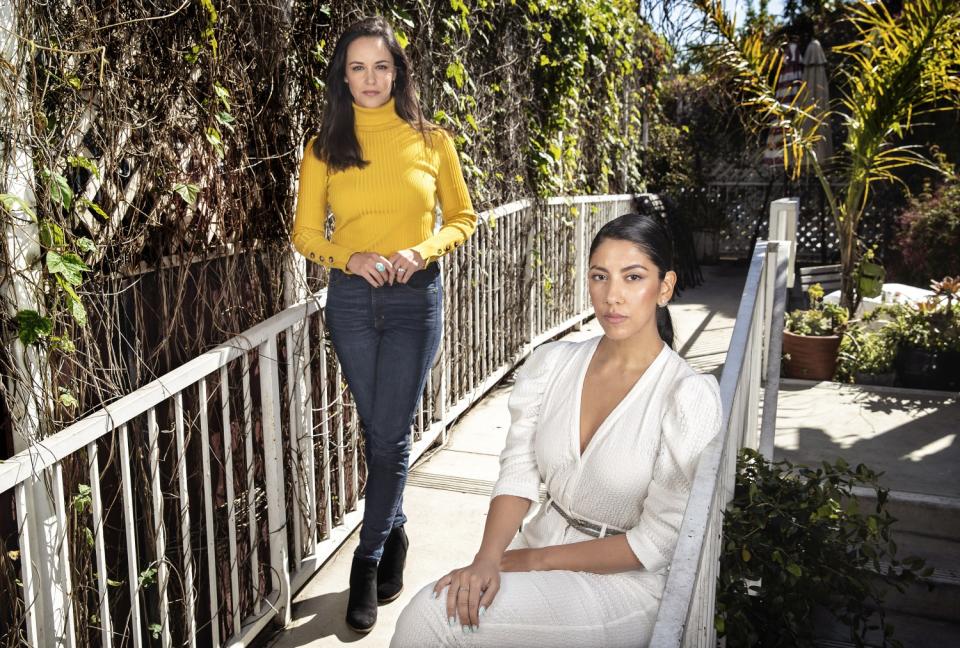
“I yearn for a Hollywood that is more reflective of what the world actually looks like, which includes everyone. I think one of the first steps in seeing more Latinos in film and TV is seeing more of every group that has existed and thrived while being erased from our screens. I’m not interested in a Hollywood that leaves any group behind so that one group is “on top” or “wins.” But also — I for sure want to star in a period drama (very gay) epic romance, like 'Titanic' but we both stay on the door and live happily ever after.”
Eva Longoria (actor, director 'Flamin' Hot')
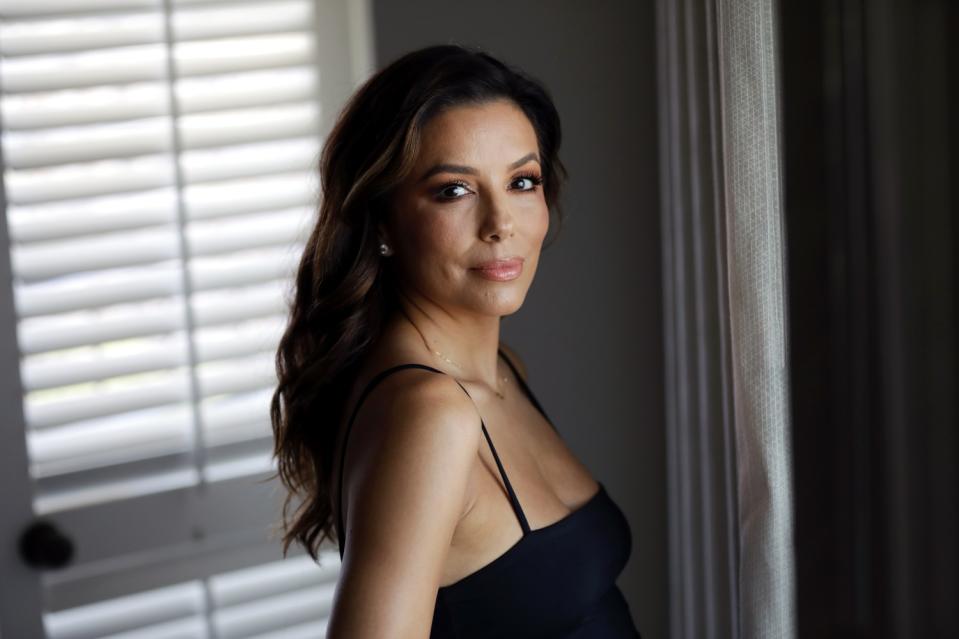
"In order to create real change, we just need the right people as gatekeepers. We're not going to keep convincing every white male studio exec to care. I don't know how we can continue to beat that drum. But what they can do is take action. A lot of these diversity programs ... those programs have to lead to jobs. That's the difference. Because a lot of these executives think that's enough — that these diversity programs check the box. And they don't, unless those programs lead to jobs and job opportunities."
"We need everybody to keep their foot on the gas, because we get like one or two wins and we're like, 'Yay!' At least we're facing the right direction. The thing that we have to do is build the pipeline of talent — and actually the pipeline is there, it's about getting the talent the opportunities so that they have the experience."
Melinna Bobadilla (actor, 'Gentefied')
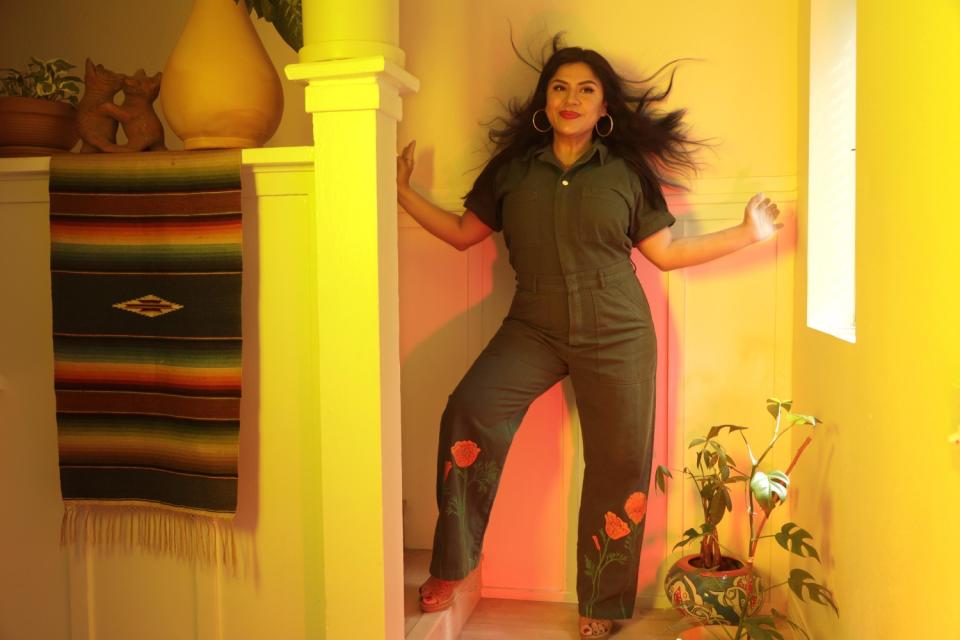
“I’m not a fan of saying, ‘What about us? Where’s our equivalent of this Black show? Or this Asian show?’ I would still say there’s not enough representation when it comes to Black actors and Black executives. Are we just conforming to bilingual whiteness? Again, that’s erasure. I’m interested in disenfranchising white supremacy in all its facets."
Linda Yvette Chávez (writer, 'Gentefied,' 'Flamin' Hot')

"Even something like 'Gentefied' is still viewed as something foreign but, no, this is an American story. This is the story of us in this country; we are a part of this country. And yes, our immigration status or the immigration status of our parents definitely is a part of our story, but it doesn't mean that we're not a part of American culture. We're so integral to American culture. And I think that because of that, not only Hollywood, but I think audiences, sometimes if you're not connected to the culture you may see it as foreign as well and think: 'Oh, I can't see myself in it; I don't want to watch it for that reason; it's not for me, that wasn't created for me.' But we never question a white show and whether or not was created for us based on what the people look like. We don't look at those white folks and say, 'Not for me' — I mean, I sometimes do now. But, you know, we were raised on it; we were conditioned to see ourselves in white people. We've been raised to do since we were born. So we know how to code switch into like, 'Yeah, I'm Monica from 'Friends,' 'I'm Carrie from 'Sex and the City.' Like, I have not one f— thing in common with those characters. I want white people walking around and saying, 'I'm an Ana' or 'I'm an Erik' or 'I'm a Lidia' [from 'Gentefied'].
Moisés Zamora (showrunner, 'Selena: The Series')
"The Catch-22 of Latinos are that we are still showing up whether Hollywood does stories about us or not, and we're still consuming at the highest rate possible at the movie theaters. So [Hollywood thinks:] 'Do we really need to cater stories to them? Because we already got them. It's like the boyfriend/girlfriend that will always call you and no matter how they treat you, we are faithful. And we still show up. It speaks to our cultural values: We love stories. It brings people together, whether it's we're going to watch a movie or we're getting together at our family reunions and telling like super-crazy stories about each other no matter how many times we've heard it."
Gloria Calderon Kellett (co-showrunner, 'One Day at a Time')

"Media can be our partners in this work. I recently see Sierra Teller Ornelas' show, "Rutherford Falls," was announced and the headlines were like, 'Ed Helms and Mike Schur have a new show.' I tweeted to Deadline saying: 'Hey, Deadline, be a part of the solution. Sierra Teller Ornelas is the first Native showrunner for comedy. Put that! Put her name in there. And, you know what, they did it 20 minutes later. That's a part of the solution. That's making our names visible. I had the same frustration when 'The Gordita Chronicles' was about Zoe [Saldana] and Eva [Longoria]. Zoe and Eva are amazing, amazing women; I get that the world knows who they are so we're gonna put them in the headline. But it's Claudia Forestieri's story, an Afro-Latina story — put her name in there! Brigitte Muñoz-Liebowitz is running it — put her name in there. Put all four powerhouse names in there so that we're lifting up and it's not the same names again and again. We need to be lifting up the people who are finally getting a seat at the table. They got a seat at the table and nobody's talking about them being at the table."
Brigitte Muñoz-Liebowitz (showrunner, 'The Gordita Chronicles')
"I want more Amy Santiagos ["Brooklyn Nine-Nine"]. I want more Latinx leads in shows that are not about things that are specifically Latinx. We don't just hang out with our families all the time. I mean, we do, but we also live in the world. We do other things. We have other interests — our jobs, our hobbies, our love lives. I would love to see Latinx people incorporated into the fabric of the rest of America more naturally. That's my goal."
Dailyn Rodriguez (co-showrunner, 'Queen of the South')
"When my 'Wonder Girl' pilot [at the CW] didn't move forward, I was crushed. And I was crushed because — this is the thing that people in this industry don't understand about creating in the Latino space — those projects not moving forward creates a different kind of pressure because you feel like: 'I'm the one that's going to do this and I'm going to help the community and this is going to change s— ... and then when it doesn't go, you feel like you've failed the community; that you've failed the Latino people; that you screwed up, even when you sit down rationally and realize the business is what the business is, and a lot of things are not in your control. But it's still soul-crushing, especially something like a superhero. There are so few opportunities for us there. It was really disappointing for me and very emotional. Yet at the same time, I feel like if that had gone on the air, I would have had so much more pressure on my shoulders for that to be a hit."
Marvin Lemus (co-creator, 'Gentefied')
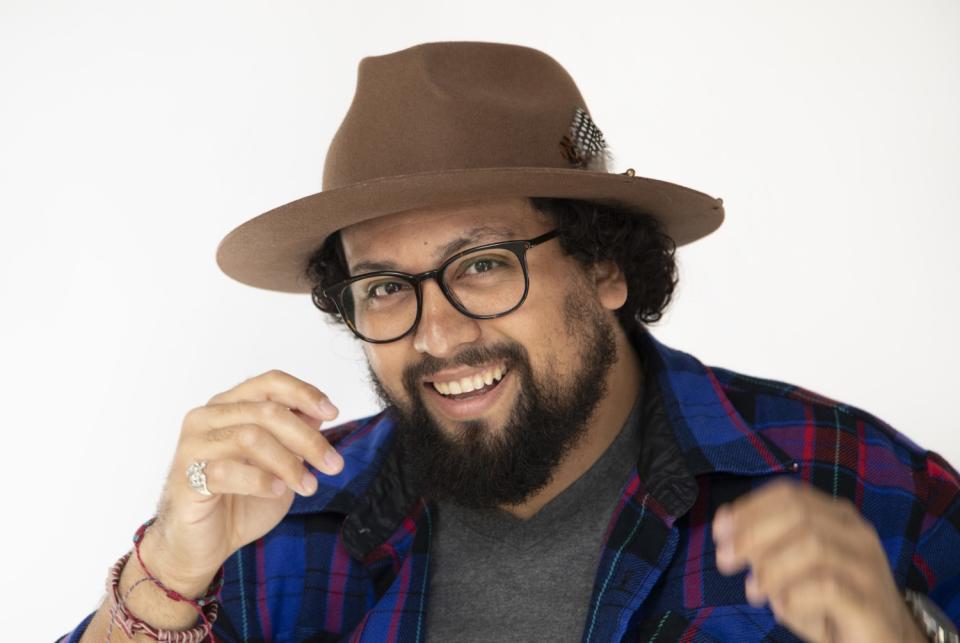
"I think I've let go of that feeling of trying to belong to somebody else's space. I finally do feel like there's community and I do feel like, the last few years, we've all been building a table that we have set up and have our own seat at. It's been really beautiful because I really do remember for so long feeling so isolated and feeling like, 'Where are we? Where are we? Where are we out here?' It's been beautiful to see all of us together, having each other's back. Now, we're gonna take up the space and we're gonna do it with sin pena."
Shea Serrano (creator, 'Primo')
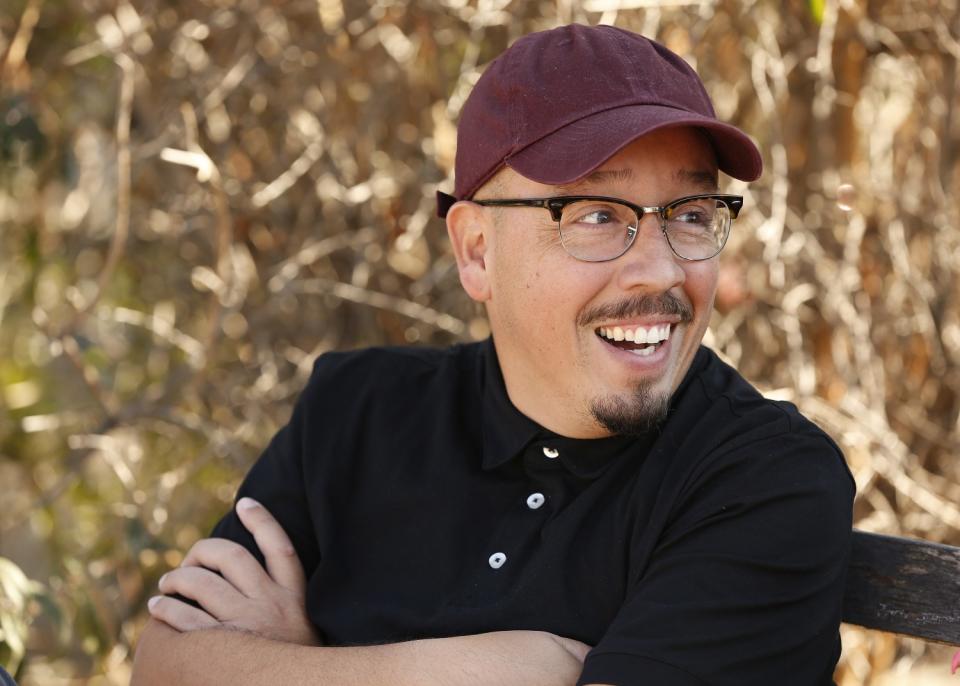
"What ends up happening is a thing will come out that will have some Latinos in it and you're watching it with your eyes squinted, because you want it to be good. Like, when 'Coco' came out, and I was like, 'Please just be good.' And then it was f—awesome. I'm really excited about 'In the Heights.' There is a lot of pressure on it. But I think that's a good thing. Once people start expecting for it to be good, to me, that's a good sign. That means things are going in the right direction. This wasn't even a conversation we could even have three years ago — we were still waiting for the chance for an 'In the Heights.' We were still like piecemeal-ing characters from other shows. Like, we don't have our own thing, but we are in some places. Now we have stories that are our own."
Claudia Forestieri (creator, 'The Gordita Chronicles')
"Latinx families need to support their children pursuing jobs in this industry, because it starts when you're young. Because we need more talent of all different types of colors and social backgrounds. It's this vicious cycle — often Latinos who have higher socioeconomic backgrounds tend to be the ones that mostly pursue careers in Hollywood because they feel financially secure. And then that just perpetuates us getting a certain look, or a certain type of story that may not necessarily be reflective of the Latino community as a whole. So, that's something I for one would love to see — people of all different social classes and all different races and ethnicities within the Latino community pursuing writing and acting because we need it."
Steven Canals (co-creator of 'Pose')
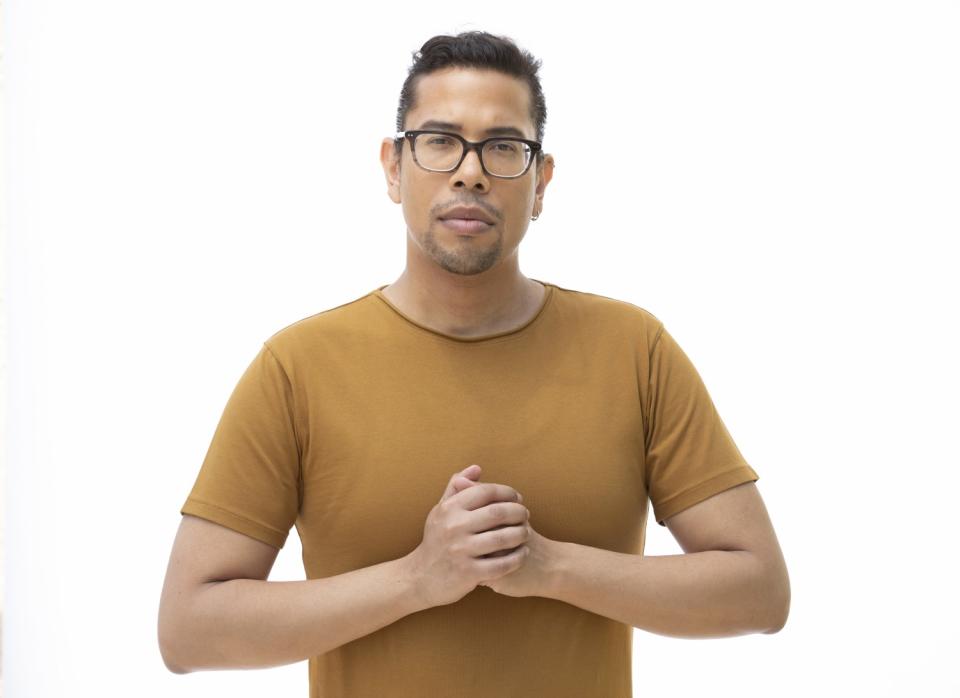
"There's a reframing that we as Latinx people have to do. We need to rewire or, as I would say very crudely, we need to unf— our brain. I think that the problem is we keep on trying to serve the master. And the reality is: The master doesn't understand us. And I think it's very clear that the master really doesn't give a s— about us either. So, in truth, we just need to do us. I am trying to be more strategic. I'm constantly assessing — I think part of it is I'm a Virgo and part of it is having worked in higher education. That's something that we all, as a community, have to do — a full assessment. Because I — we, too — keep on throwing darts, not really knowing what the f— the target is. And I think that's why we keep missing, because we all are sort of fumbling in the dark trying to figure it out, as opposed to just taking a step back. And then just being really intentional."
Hailey Chavez (writer, 'Superstore')
"I am fortunate enough to have come up in a time when the needle is starting to move a little bit. When I was in college, 'Girls' was all the rage and, like ... a Latina would never get to make 'Girls.' Let's be real. I absolutely thought I would be telling stories about the white experience. I look back at what I wrote in college, and I did one thing that was about an Italian chef. Like, why didn't I write about like a Cuban chef or Mexican chef, because those are the foods that I know — why didn't I do that? Because I didn't think that I could, that people would be interested in hearing about that. I definitely thought that I would have to change my perspective and point of view to fit a general population."
Sean Tretta (co-executive producer, 'Mayans M.C.')
"I think people are interested in authenticity, and it becomes a double-edged sword, too. I've been told by people, 'You need to play up your Latinx heritage.' There’s a stigma with the 'diversity hire' that you’re just there because you’re brown, and I had people say that to me. I worked hard. I ended up getting a double promotion between Seasons 2 and 3 … 'Mayans' is great, I'll tell you firsthand the beauty of being on that set, seeing those faces together, every one of those actors realizes the importance of the position they’re in. They understand the weight, privilege, opportunity of that representation. 'Mayans' is a spinoff of 'Sons of Anarchy,' it’s set in that world, so we’re trying to project that world faithfully. But what’s our 'Downton Abbey'? What’s the show that we’re going to have that talks about the beauty and prosperity of the history and the culture?
When I was a kid I had people get in my face and call me an immigrant, and my grandfather fought in World War II, he was part of that unit that was mostly comprised of Latinos from Texas and New Mexico. These are Americans that have been part of America for generations. Less and less, people are seeing Latino faces as being foreign. They're their neighbors, they're their friends, they're the kids their kids see in school and play sports with."
George Salinas (executive producer, 'Julie and the Phantoms')
"We’re Latinos. We’ve been here forever obviously. People are always trying to get into the Latin market, right? Well, you’re already in it. You’re in it, and you don’t know it. All you have to do is feed it."
Joey Chavez (executive vice president, original drama programming, HBO Max)
"It’s taken two decades for me to be one of the first Latinx men running a department for one of these programming companies and I'm very proud of that. I feel very lucky about my first fellowships. If these multiple programs hadn’t all existed separately, I may have not been able to get here. It took that level of effort for those windows or doors to be opened to me. So, yes, those programs work, and the pipelines, and I'm living proof of that, but I also think having people in the positions to actually hire, and give people the shots — here at HBO Max the past couple years, I hired a very diverse group — that is even more meaningful than anything else, because you're in a position to actually hire people."
This story originally appeared in Los Angeles Times.

 Yahoo Movies
Yahoo Movies 